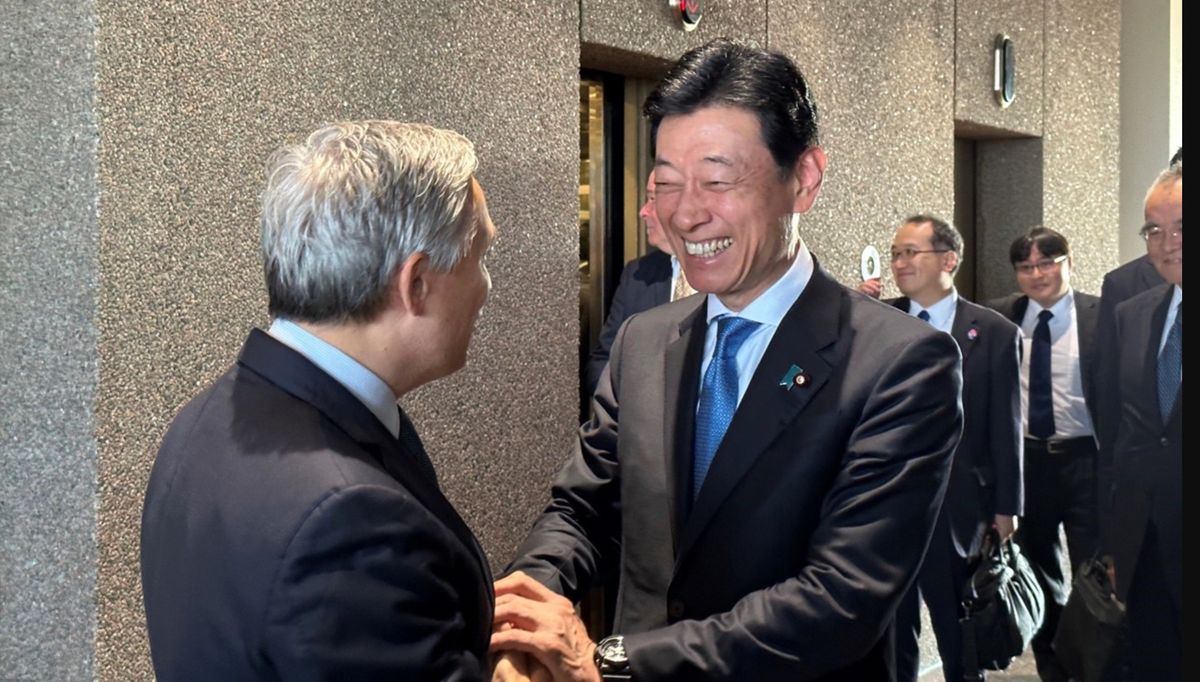Japan Plays Catch-Up to Break From China-Dominated EV-Supply Chains

The Lede: A report from Nikkei this week indicates that Japan has been lagging in securing critical mineral supply chains for its electric vehicle industry as the country follows larger U.S. and Western shifts away from dependence on China. In recent months, Japan has had meetings with Canadian and Australian leaders on the matter, but the country has been slower than rivaling South Korea in making deals as the window of opportunity narrows.
What We Know:
- Japanese Minister of Economy, Trade and Industry Yasutoshi Nishimura visited Canada late last month to sign a memorandum on cooperation for establishing an EV supply chain. It was the first time in almost 10 years that a Japanese trade minister had visited Canada. On the trip, Nishimura met with three Canadian ministers including Francois-Philippe Champagne, the Minister of Innovation, Science and Industry .
- Executives from Tesla supplier Panasonic Energy and Toyota Motor battery subsidiary Prime Planet Energy & Solutions were also in attendance. The two companies announced plans to cooperate with Canadian companies to form potential supply chains for nickel and graphite.
- Japanese and Australian representatives met in June, after which they agreed to hold future meetings to discuss development of a supply chain for crucial minerals that cuts dependence on China.
- Japanese companies are also finding it difficult to acquire raw essential minerals from Indonesia and Chile, which are respectively rich in nickel and lithium reserves due to recently imposed export limitations.
- Takeshi Harada, director of the Metal Strategy Department at Japan Organization for Metals and Energy Security (JOGMEC) expressed to Nikkei that Japan traditionally prefers simpler, long-term supply contracts instead of investing in the project itself, missing the opportunity to purchase materials in larger quantities or negotiating in more favorable terms
The Background: China controls a significant part of the world's EV material refining capacity. 65% of global processing of lithium, including refining, is done in China. The country also processes 74% of the world’s cobalt and 17% of the world’s nickel. Last year, Canada made changes to its investment guidelines, which made it more difficult for Chinese state-owned companies to invest in its mining or refining projects. Many Chinese and Hong Kong-based companies pulled investments from Canadian lithium companies in response.
Likely Outcomes:
- Japan will likely have to strip away red tape and business practices that have been obstacles to securing critical mineral deals until now. The report from Nikkei cites the lack of Japanese investments in an industrial park in Becancour, Quebec—a Canadian town that is gearing up to be an EV supply chain hub—despite the two countries being in talks on the matter. Meanwhile, large companies from other countries such as Ford Motor and the South Korean battery manufacturer SK On made big investments there in August.
- Without effective deals with aligned countries that can provide both raw and processed critical materials for their EV-industry, Japanese car brands may lag significantly behind their counterparts in other countries for the foreseeable future. Countries that are united behind the shift away from Chinese supply chains may craft policies to mutually support automakers in associated nations, but even in this scenario, there will likely to be considerable difficulty across the board as China controls so much of the refining capacity and has made deals with countries that produce the raw minerals. .
Quotables:
"The EV market enjoyed significant growth especially in China, so it is natural for processing companies to gather there, as it is near consumption [channels]. Japanese companies tend to over-predict the risks in getting involved in mining projects. Japanese companies must take one more step forward if they really want to secure EV mineral rights.” – Takeshi Harada, director of the Metal Strategy Department at Japan Organization for Metals and Energy Security (JOGMEC)
Good Reads:
Japan courts Canada, Australia for China-free EV supply chain (Nikkei)
